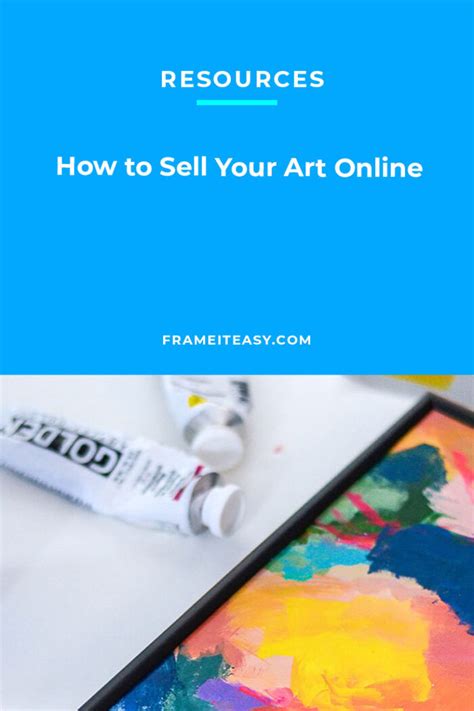How to Sell Art Online: A Guide for Artists
Selling art online can be a lucrative and fulfilling way to share your creativity with the world. This guide provides a comprehensive strategy for artists looking to build a successful online art business. We'll cover everything from choosing the right platform to marketing your work effectively.
Choosing the Right Online Platform
The platform you choose significantly impacts your success. Consider these popular options:
Etsy:
- Pros: Huge established marketplace, built-in audience, easy to set up. Ideal for handcrafted items and unique art pieces.
- Cons: High competition, fees can eat into profits, less control over branding.
Shopify:
- Pros: Complete control over your brand and website design, scalability for growth, advanced features for marketing and sales.
- Cons: Requires more technical knowledge and upfront investment, requires building your own audience.
Saatchi Art:
- Pros: Focuses specifically on art, built-in audience of art buyers, handles shipping and payments.
- Cons: High commission fees, competition from other artists.
Instagram:
- Pros: Powerful visual platform, organic reach potential, direct engagement with followers.
- Cons: Requires consistent effort to build a following, limited sales features.
Your Own Website:
- Pros: Ultimate control, build brand loyalty, no platform fees.
- Cons: Requires significant investment in time, money, and technical skills.
Choosing the best platform depends on your art style, budget, technical skills, and business goals. Start with one platform and expand as your business grows.
Optimizing Your Online Presence
Once you’ve chosen your platform, focus on these key areas:
High-Quality Images:
Strong, professional photos are crucial. Invest in good lighting and photography skills or hire a professional photographer. Showcase your art from multiple angles. Use a consistent background and editing style.
Compelling Descriptions:
Write detailed and engaging descriptions for each artwork. Include the title, medium, dimensions, inspiration, and any other relevant information. Use keywords that potential buyers might search for.
Competitive Pricing:
Research the market to determine a fair price for your art. Consider your materials, time investment, and skill level. Don't undervalue your work!
Professional Branding:
Develop a consistent brand identity that reflects your art style and personality. This includes your logo, color palette, and overall aesthetic.
Marketing Your Art Online
Effective marketing is key to attracting buyers. Consider these strategies:
Social Media Marketing:
Use platforms like Instagram, Pinterest, and Facebook to showcase your work and engage with potential buyers. Share behind-the-scenes content, participate in relevant hashtags, and run targeted ads.
Search Engine Optimization (SEO):
Optimize your website and online listings for search engines. Use relevant keywords in your titles, descriptions, and image alt text.
Email Marketing:
Build an email list to nurture relationships with your audience and promote new artwork and sales.
Collaborations and Partnerships:
Collaborate with other artists, influencers, or businesses to reach a wider audience.
Shipping and Handling
Shipping artwork requires special care. Use appropriate packaging materials to protect your pieces during transit. Clearly state your shipping policies and costs in your listings.
Building a Loyal Customer Base
Providing excellent customer service is essential for repeat business. Respond promptly to inquiries, offer personalized recommendations, and build relationships with your customers.
Selling art online requires dedication and a strategic approach. By following these steps and continually refining your strategies, you can build a successful online art business and share your passion with the world. Remember to adapt and learn as you grow!
